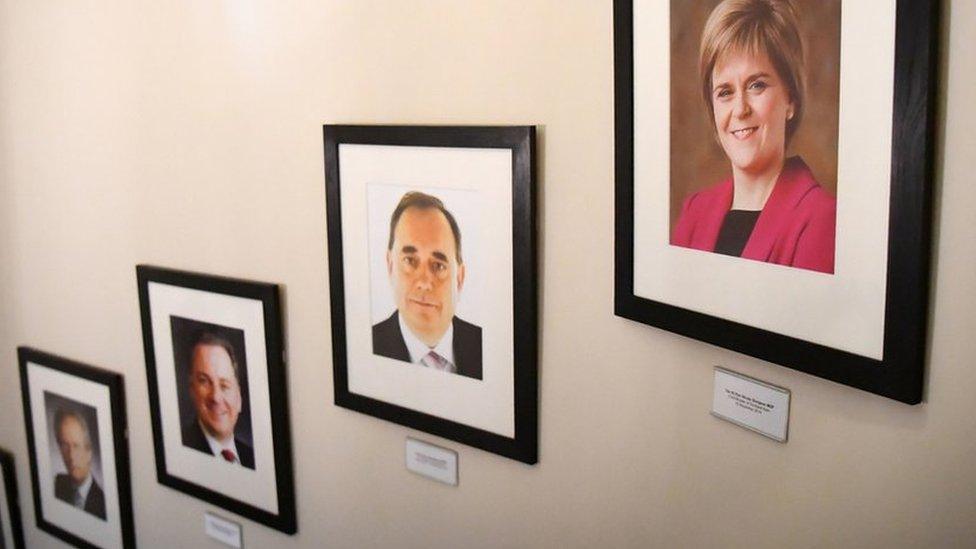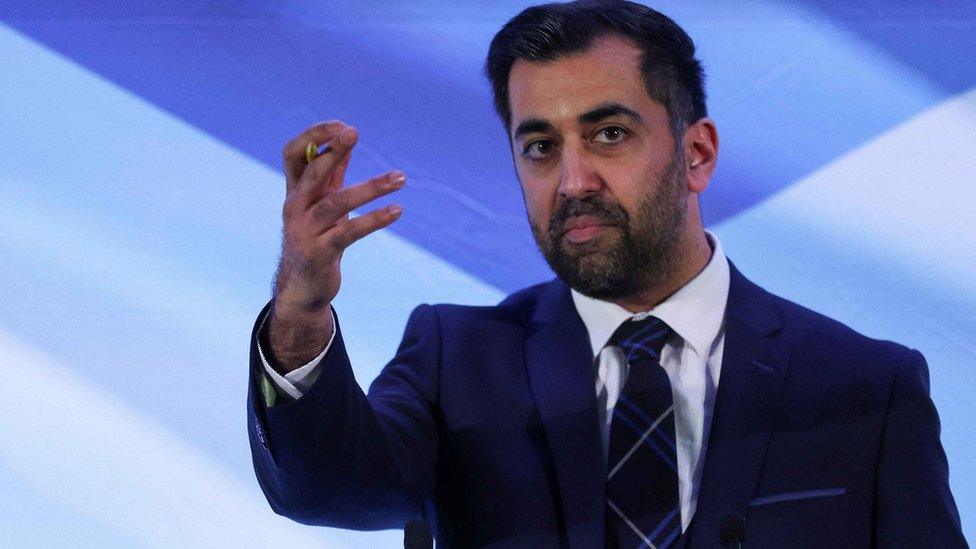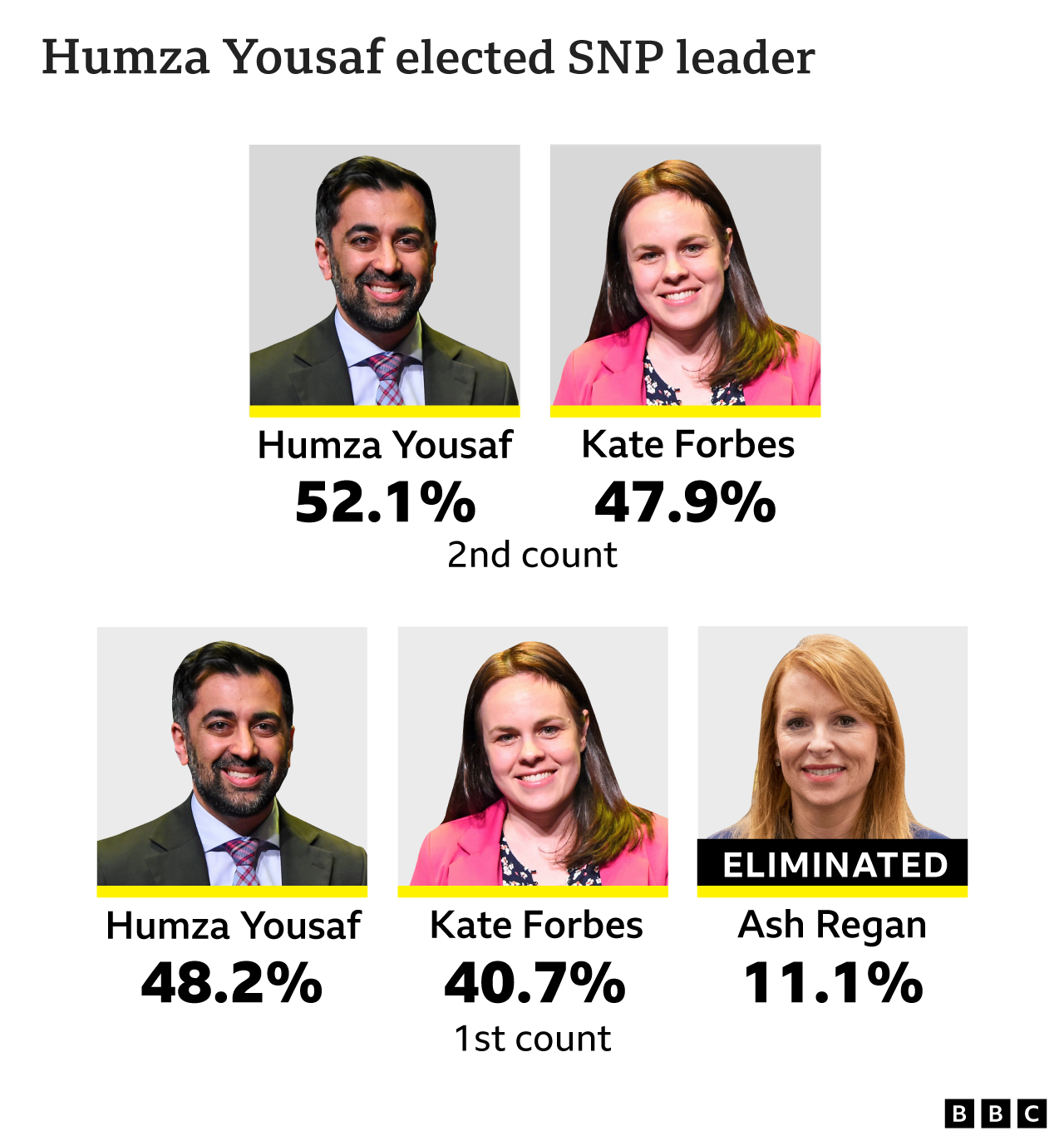How will Scotland's new first minister be appointed?
- Published

Humza Yousaf has won the race to succeed Nicola Sturgeon as leader of the SNP, and will now face a vote in the Scottish Parliament before being confirmed as the country's sixth first minister.
About 50,000 of the SNP's 72,000 members took part in the leadership vote, which saw Mr Yousaf defeat Kate Forbes and Ash Regan.
The leadership election was decided by the Single Transferable Vote system, with Mr Yousaf failing to win a majority in the first round of voting.
But he won 52.1% of the votes after second preference votes from Ms Regan, who was eliminated after finishing third in the first round, were redistributed.
Ms Forbes came second with 47.9% of the votes when second preferences were included, with Mr Yousaf receiving a total of 26,032 votes and Ms Forbes 23,890.
When Ms Sturgeon announced that she was standing down, she said she would continue as first minister until her successor was chosen.
It is expected that she will now formally inform the King of her intention to resign as first minister after more than eight years in the role.

On Tuesday, Mr Yousaf will be nominated by MSPs to replace Ms Sturgeon as first minister.
Any MSP from any party can also be nominated for the role. There were seven candidates in 2003, with Ms Sturgeon defeating then-Conservative leader Ruth Davidson in 2014, Liberal Democrat leader Willie Rennie in 2016 and both Mr Rennie and current Tory leader Douglas Ross in 2021.
It is expected that Mr Yousaf will be up against Mr Ross, Scottish Labour leader Anas Sarwar and Lib Dem leader Alex Cole-Hamilton this time around - although none of the opposition leaders has any prospect of winning.
After the nominees have all made a brief speech in parliament, MSPs will vote for their preferred candidate.

A candidate must receive more votes than all of their rivals combined in order to win.
If this does not happen, the contender with the least number of votes drops out and another round of voting is held.
This process continues until one candidate gets a majority of the votes cast.
The parliament's presiding officer, the equivalent of the Speaker in the House of Commons, will then recommend to the King that he appoints the winning candidate as first minister of Scotland. Unless something truly remarkable happens, that will be Mr Yousaf.
In the unlikely event that parliament cannot elect a first minister within 28 days, an election would be held.
The new first minister will be formally sworn in - probably on Wednesday - in a short ceremony at the Court of Session in Edinburgh.
Nicola Sturgeon was sworn in in a simple ceremony at the Court of Session in Edinburgh
He will then take the "official declaration", or oath of office, with the court's Lord President also asking them to take a vow as Keeper of the Scottish Seal, external.
Finally, he will also make an oath of allegiance to the King.
The first minister is likely to start the process of appointing government ministers after he has been sworn in.
Mr Yousaf - a republican - will also become a member of the King's Privy Council group of advisors, and is likely to be invited for a private audience with the monarch.
On Thursday, he will face opposition leaders for the first time at the weekly First Minister's Questions session.